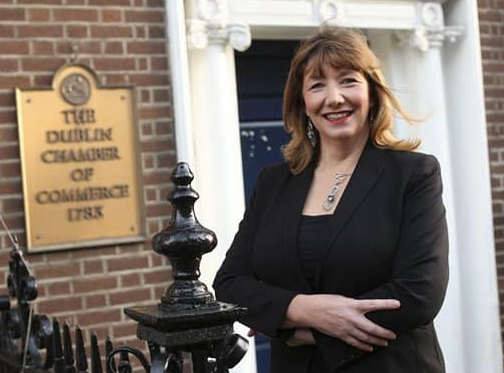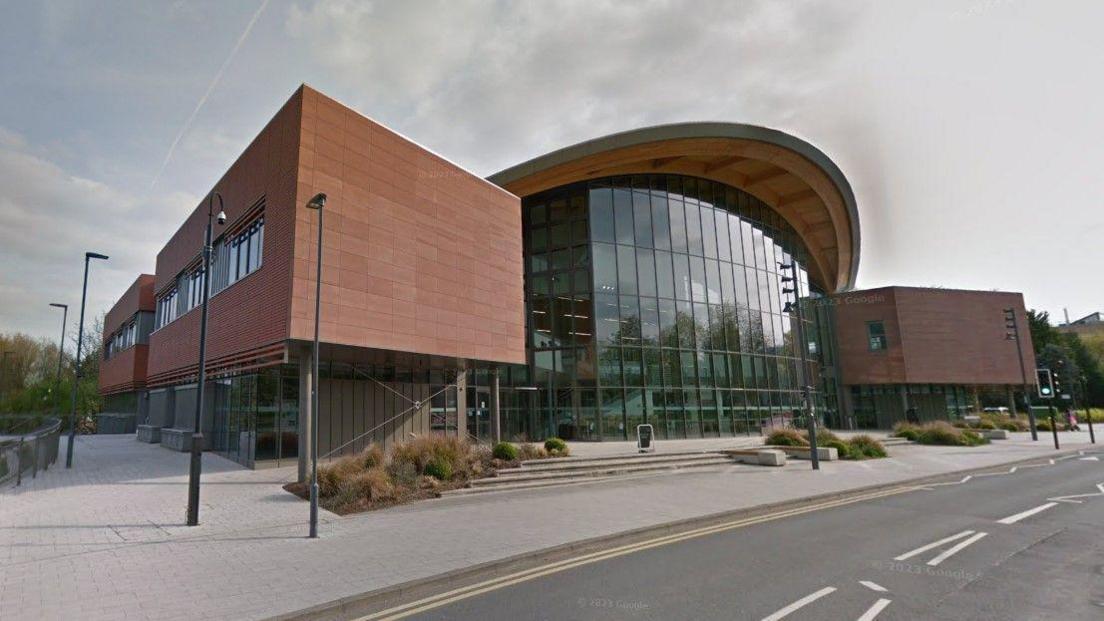On the 11th of March 2020, the World Health Organisation declared the COVID-19 outbreak a global pandemic.
On the 23rd of March, the UK went into lockdown.
Five years on, experts from The University of Warwick are reflecting on the impact of the pandemic from a range of perspectives including virology, psychology, medical education and long-COVID recovery. James Gill, Associate Professor Clinical Studies Warwick Medical School.
The lingering impact of COVID: COVID-19 upended medical education, and technology was used to fill the gaps left from losing face-to-face learning. As in-person teaching returned, the focus has shifted.
Clinical educators play a bigger hands-on role in clinical skills examinations, while ‘book learning’ has moved online, allowing students to learn at their own pace. James can comment on: The impact of Long COVID in the work force and student population (based on his work in the Long COVID clinic), COVID, the disease still at large, the ongoing fear of COVID in face-to-face settings, particularly with students and the Novel teaching techniques and how clinical education has changed following COVID.
He said: "Long COVID has been a silent burden which has lingered from the height of the pandemic.
“The risk of a COVID infection converting to Long COVID is about 1 in 10. With 50% those long COVID patients being plagued with chronic fatigue as a main symptom.
“As a result, it is likely that in an average lecture theatre of 40 students, 2 students will still be fighting ongoing effects of the pandemic. That’s potentially a significant number of students who’ve had the challenge of medical school dramatically increased.
“As an institution we try to maximise the experience of all students who might have increased needs, whether those needs are visible or not. Thankfully many of the changes put in because of the pandemic have continued and now provide increased support to those individuals who are still carrying an impact from the infections.
“In many ways, five years ago, covid stopped the world. In restarting, I’m like to think that the medical school has learnt how to be a better place for our students, staff, and I’m sure this will lead to better doctors for our patients too.” Gordon McGregor. Professor of Clinical Exercise Physiology & Rehabilitation at Warwick Medical School & University Hospitals Coventry & Warwickshire NHS Trust highlighted the route to recovery from Long COVID.
Long COVID remains a major public health challenge. It can be very difficult to live with and has many unpleasant symptoms such as breathlessness, fatigue, pain, low fitness, and poor emotional wellbeing.
Cost-effective and actionable treatment plans need to be implemented, such as the REGAIN programme. Full research: Clinical effectiveness of an online supervised group physical and mental health rehabilitation programme for adults with post-covid-19 condition (REGAIN study): multicentre randomised controlled trial | The BMJ.
Gordon can comment on: Long COVID and the quality-of-life impacts on people today and the REGAIN programme and the impact of exercise and support on recovery from long COVID. “Long COVID remains a major public health challenge,” he said.
“It can be very difficult to live with and has many unpleasant symptoms such as breathlessness, fatigue, pain, low fitness, and poor emotional wellbeing. Treatment and support are very limited.
“The REGAIN study (2024) aimed to find out which of two treatments is better at helping people with long COVID recover after being in hospital with COVID-19. Receiving the REGAIN programme made a difference.
“Quality of life at three and 12 months was better in people who took part compared to the one-off advice group. People were less fatigued, and their mental health was better. The REGAIN is both safe and enjoyable, and health economists showed that it is cost effective for the NHS.”
Heidi Ashton is Associate Professor at the Centre for Culture and Media Policy Studies and questions ‘Culture Comforts’? She also remarks on how arts and culture shaped our lives during COVID.
The arts have always provided a range benefits for our physical, emotional, social and psychological wellbeing, it is even prescribed by the NHS and the benefits are recognised by the WHO. During the COVID pandemic however the power and value of arts and culture became visible and tangible in new ways.
For many it provided comfort and connection but for many arts workers it was a loss of their livelihood and years of training and toil. Heidi who can comment on, highlighted the power and value of arts and culture during COVID providing us with information, education, sanity and community and the impact COVID had on people employed in the arts and cultural sector.
She comments: "During the COVID pandemic however the power and value of arts and culture became visible and tangible in new ways.
“For many it provided comfort and connection but for many arts workers it was a loss of their livelihood and years of training and toil. COVID was not only a time when we experienced the true value of arts and culture but also a time when we lost many of those who create the works that we turn to in times of difficulty and joy.
“The lesson we can learn is to ensure that we have a thriving arts and culture to turn to in the future." Ivo Vlaev, Professor of Behaviour Sciences at Warwick Business School highlighted the ‘Compliance and Trust – what have we learned about human behaviour from COVID-19’.
The COVID-19 pandemic drastically altered human behaviour across multiple domains—how we interact, trust institutions, make health decisions, and respond to uncertainty. Five years on, we have a wealth of data and psychological insights into how individuals and societies adapted to the crisis, and what this means for future public health challenges.
He can comment on: ‘Vaccination Behaviour: How risk perception, trust in science, and social norms influenced vaccine uptake, the role of behavioural nudges, incentives, and mandates in driving vaccination and what we’ve learned from vaccine hesitancy and how to improve public health messaging. Under ‘The Long-term Psychological Impact of COVID-19 on Human Behaviour,’ he looks at ‘How the pandemic changed social trust and attitudes toward government interventions,’ ‘the shift in remote working, digital interactions, and long-term lifestyle changes’ and ‘the psychological scars of uncertainty and how future crises might shape behaviour differently.
Covering ‘Social Behaviour and Compliance with Public Health Measures,’ you would look at ‘Why people followed (or resisted) lockdowns, mask mandates, and social distancing,’ ‘How cognitive biases (e.g., optimism bias, reactance) shaped adherence to rules’ and ‘The role of collective identity and community in fostering public cooperation’. He says: “Effective prosocial messaging relies on clear, emotionally engaging, and action-oriented communication.
“Are messages focusing on protecting others effective in changing behaviours compared with other messages? On which behaviours (e.g., social distancing, hand washing, face touching, using hygiene products, and so on) do messages about protecting others have positive effects?
“Messages that highlight social norms, personal relevance, and practical steps are more likely to drive behaviour change, particularly when delivered by trusted sources. So, recommendations are government should frame public health messages about social responsibility and raising awareness about others, especially about loved ones (friends and family).
“Also, deliver clear public health messages about risks, increasing the public’s awareness of the consequences regarding the health of others.” Lawrence Young, Emeritus Professor of Molecular Oncology at Warwick Medical School shared reflections and future perspectives from Professor Young after 5 years of COVID-19 Commentary
The COVID-19 pandemic highlighted our vulnerability to emerging virus infections as well as shaking us out of the complacent view that we needn’t be concerned about the dangers of infectious diseases. Five years later, we have seen significant changes in vaccine technology, our understanding of viral infection and our approach to emerging infectious diseases.
Lawrence, who can discuss the role of independent responsibility in controlling viral spread, how we can learn from COVID to effectively handle future pandemics and the advances in vaccine technology because of the COVID-19, commented: “The COVID-19 pandemic has been a wake-up call highlighting our vulnerability to emerging virus infections as well as shaking us out of the complacent view that we needn’t be concerned about the dangers of infectious diseases.
“The pandemic hastened the development of new technologies such as mRNA vaccines and lateral flow tests for point-of-care diagnosis. It also highlighted the importance of individual responsibility in controlling the spread of virus infection and in the need to protect the most vulnerable in our society.
“The hope is that this experience will equip us to respond more effectively to any future emerging infectious diseases.” Professor Stuart Hampton-Reeves, Head of School of Creative Arts, Performance and Visual Cultures remarked on the real impact of COVID on the theatre sector
Bringing professionals from the theatre sector into the lecture room we’ve seen first-hand how the theatre has emerged from COVID. The sector has experienced challenges in re-engaging audiences, the loss of expertise behind the scenes (especially with technicians), the financial challenge especially now COVID loan repayments are kicking in, the increasing precariousness of life for freelance workers in the industry, the impact of cost-of-living rises, the difficulties currently being faced by various drama schools and the drain away of local authority funding across the UK.
But the future is looking positive for the theatre sector - the West End has rebounded and audiences are returning to regional theatres, there are some exciting new artistic directors right across the sector, and there are lots of signs that the theatre industry is grappling with the present with the same level of insight and the ability to create debate about the world as we experience it now that it has had since Shakespeare's day.
Stuart is also available to comment on the financial challenge faced by the sector many of whom are freelance – covering the impact of COVID loan repayments, the cost-of-living crisis and the reduction in local authority funding, the challenges across the industry of re-engaging audiences, felt particularly by regional theatre and the loss of expertise behind the scenes due to theatre closures during the pandemic.











